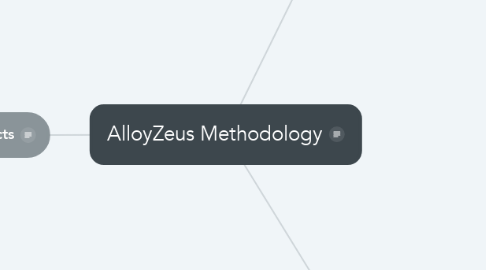
1. Objects
1.1. Types
1.1.1. Entity
1.1.1.1. Identity
1.1.1.1.1. ID
1.1.1.2. Lifecycle
1.1.1.2.1. Creation
1.1.1.2.2. Deletion
1.1.1.2.3. Expiration
1.1.1.3. Ownership
1.1.1.3.1. Transfer policy
1.1.1.3.2. Owner cardinality
1.1.1.3.3. Time constraint
1.1.1.4. Abstraction
1.1.1.5. Aggregate
1.1.1.6. Service
1.1.1.6.1. Inlined services
1.1.1.7. Metadata
1.1.1.7.1. Built-ins
1.1.1.8. Implementations
1.1.1.8.1. Root-entities
1.1.1.9. Special entities (abstract)
1.1.1.9.1. Application
1.1.1.9.2. User
1.1.1.9.3. Terminal
1.1.1.9.4. Session
1.1.1.10. Attributes
1.1.2. Adjunct
1.1.2.1. Hosts
1.1.2.1.1. Cardinality
1.1.2.1.2. Inverse cardinality
1.1.2.2. Implementations
1.1.2.2.1. Adjunct-entities
1.1.2.2.2. Adjunct-values
1.1.3. Value object
1.2. Attributes
1.2.1. Value ownership
1.2.1.1. Own values
1.2.1.2. Projected values
1.2.2. Rules and policies
1.2.2.1. Value finality (freezing)
1.2.2.1.1. Final
1.2.2.1.2. Set-once
1.2.2.1.3. Dynamic (can be changed anytime)
1.2.2.2. Initialization parameter kinds
1.2.2.2.1. Literal
1.2.2.2.2. Copy
1.2.2.2.3. Proxy
2. Ports
2.1. Access control
2.1.1. Policies
2.1.1.1. Expression language
2.2. Operations
2.2.1. Operation types
2.2.1.1. Mutation
2.2.1.2. Query
2.2.1.3. Subscription
2.2.2. Components
2.2.2.1. Requests
2.2.2.1.1. Call metadata (request context)
2.2.2.1.2. Request body
2.2.2.2. Results
2.2.2.2.1. Result context
2.2.2.2.2. Result body
2.2.3. Operation info
2.2.3.1. OpID
2.2.3.2. Actor
2.2.3.2.1. Terminal
2.2.3.2.2. User
2.2.3.3. Request info
2.2.3.3.1. Request ID
2.2.3.3.2. Request received date-time
2.2.3.4. Result info
2.2.3.4.1. Error
2.2.3.4.2. Effective date-time
2.2.4. Data authentication, integrity, and security
2.3. Visibility of the ports
2.3.1. Public
2.3.2. Intra-process
2.3.3. Private
